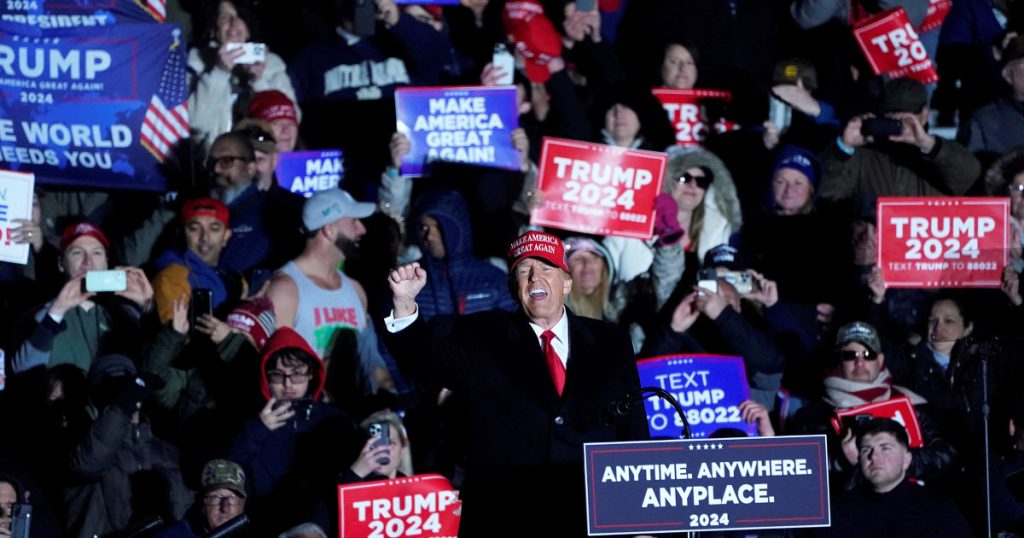The Pennsylvania primary on Tuesday revealed a substantial protest vote against both Joe Biden and Donald Trump, with Trump facing more protest votes than Biden. Pennsylvania is the only battleground state with closed primaries, which impacted the results. Many Republican voters cast ballots for former U.S. ambassador Nikki Haley, who dropped out, while Democratic voters selected Rep. Dean Phillips or submitted write-in votes. The challenge for both candidates is to unify their party and prevent internal dissenters from supporting their opponent. Pennsylvania was won by Biden in 2020 and Trump in 2016, highlighting the importance of retaining support within their parties.
The Trump campaign dismissed the protest votes, noting high levels of support among Republicans for Trump in national polls. They also criticized Pennsylvania’s method of counting write-in votes, which initially skewed the perception of the protest vote. Despite limited campaign efforts in Pennsylvania, Trump supporters remain confident in his ability to win over Haley protest voters by November, especially given economic concerns and inflation. The Biden campaign, on the other hand, has been actively working to unify the party through grassroots organizing and campaign infrastructure, which they believe gives them an advantage in the state.
The distribution of protest votes in Pennsylvania, particularly in collar counties and key swing regions, is seen as a warning sign for both parties. Trump faces challenges in suburban areas, where Haley garnered significant support. However, some Haley primary voters intend to support Trump in the general election, indicating potential fluctuations in support. Democrats have concerns about depressed turnout in Democratic strongholds like Allegheny and Philadelphia counties, which could impact Biden’s chances of victory. The protest votes underscore the need for both campaigns to address internal divisions and bring voters back into the fold.
Former Rep. Rothfus emphasized the significance of protest votes given Pennsylvania’s narrow margins in previous elections. Trump’s strong support among Republican voters should have amounted to a landslide victory, making the protest votes concerning. The anti-Trump sentiment in the GOP primary is buoyed by past instances of Republican voters supporting Democratic candidates, suggesting a potential shift in party allegiance. The Biden campaign has touted the primary results as evidence of Trump’s struggles to expand his coalition and secure crucial electoral votes for victory.
Despite differing opinions on the impact of protest votes, Pennsylvania Republicans and Democrats alike acknowledge the importance of addressing internal dissent and unifying their parties. The campaigns are focused on mobilizing their bases, building support among key demographics, and countering opposition narratives. While some believe the protest votes are temporary and voters will ultimately return to supporting their party’s nominee, others view them as a warning sign of potential challenges ahead in the general election. With Pennsylvania being a critical battleground state, the outcome of the primary underscores the need for strategic outreach and messaging to secure victory in November.


